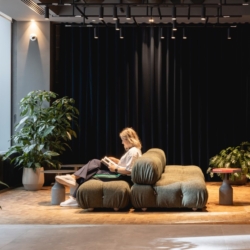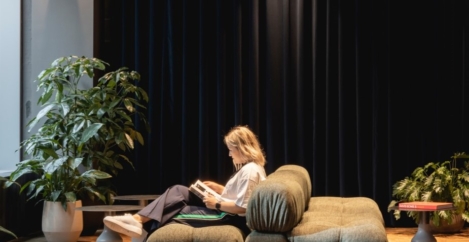September 26, 2023
Poor workplace design means a quarter of people may consider quitting job
 A new poll claims that over a quarter (27 percent) of workers would consider leaving their job due to poor workplace design, as an increasing number of companies phase out remote working. Commissioned by design and architecture studio MoreySmith, the survey of 2,000 UK adults by Yonder asked the public about the importance of the office environment for their wellbeing at work. Half of those that responded said that the amenities of a workplace would impact their decision on whether to work for a company, rising to 57 percent of 25-34 year olds.
A new poll claims that over a quarter (27 percent) of workers would consider leaving their job due to poor workplace design, as an increasing number of companies phase out remote working. Commissioned by design and architecture studio MoreySmith, the survey of 2,000 UK adults by Yonder asked the public about the importance of the office environment for their wellbeing at work. Half of those that responded said that the amenities of a workplace would impact their decision on whether to work for a company, rising to 57 percent of 25-34 year olds.
Meanwhile, more than two thirds (69 percent) of workers say their office has a direct impact on their mental health, physical health and wellbeing. Working from the office was also highlighted as essential for career progression and development across all age groups. Over half (53 percent) of workers believe there is greater opportunity for promotion when they are working in the office and are visible to the senior team.
Linda Morey-Burrows, Founder and Principal Director of MoreySmith, said: “The workplace has become so much more than just a place to work and the findings illustrate the significant impact it has on wellbeing, social connection and career development. Companies looking to attract their employees back full time must consider the amenities they are providing their teams and the overall experience of working in a central workplace.”
According to the survey, more than half (58 percent) of people willing to work from the office five days a week if the amenities added up to more than the cost of their commute. Nearly a third (32 percent) of workers would also be more likely to work in the office five days a week if it was dog friendly, with features such as a doggy daycare, groomers, and dog walkers.
Dr Nigel Oseland, Research Fellow at Liverpool John Moores University and workplace strategist, said: “As the results indicate, the office must be more attractive than the convenience of working from home by providing a range of amenities that facilitate good value activities. This means becoming a destination for events, both social and work-related, and supporting career development. The workplace must promote wellbeing and enhance mental health through better design and working conditions.”



















